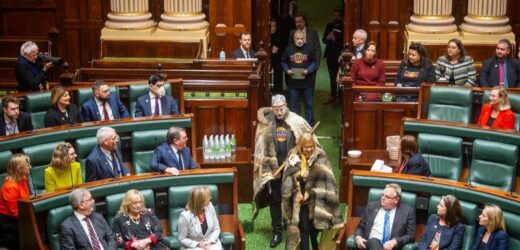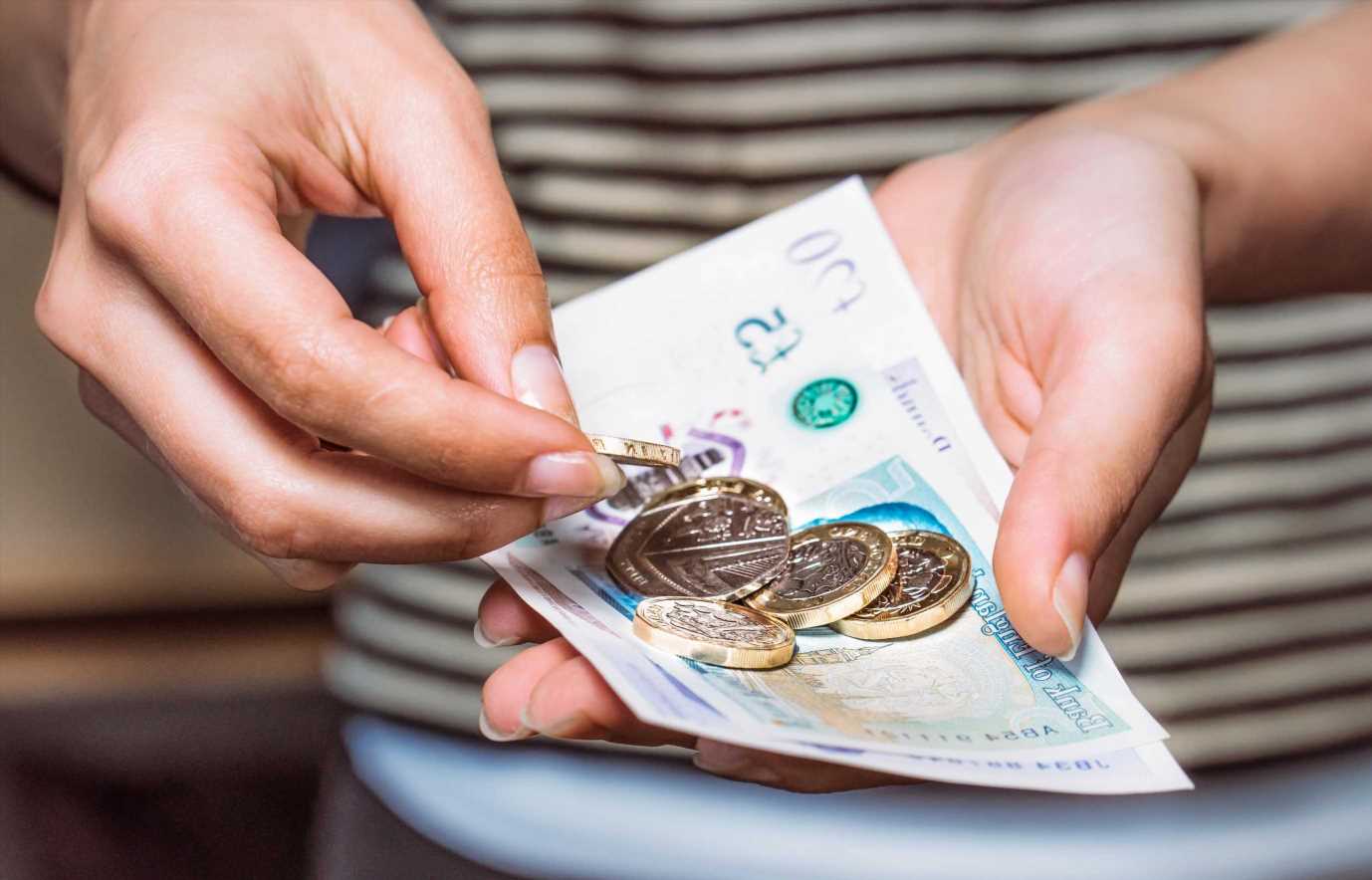Swathed in a long possum skin cloak and with his face and hair slathered in ceremonial white ochre, Nira illim bulluk man Marcus Stewart stood on the floor of state parliament on Wednesday and asked MPs to back a bill to move the state one step closer to a Treaty with Indigenous Victorians.
After a smoking ceremony on the steps of the building, the lower house put its business on hold to allow Stewart and Aunty Geraldine Atkinson, the co-chairs of the First Peoples’ Assembly of Victoria, to address MPs before a debate on “a vital piece of the architecture” for the Treaty Authority Bill.
Co-chairs of the First Peoples’ Assembly Aunty Geraldine Atkinson and Marcus Stewart are introduced to parliament.Credit:Justin McManus
“Walk with us on the journey,” Atkinson addressed the MPs. “You each have a part to play here in ensuring this can happen.”
“I ask that you give [the bill] your blessings and play your part in making history. Don’t look back on this moment in years to come to see yourself on the wrong side of history. Instead, step into this moment and have the courage to help create change.”
The bill proposes to establish a statutory body led by and composed entirely of First Nations people. An independent panel will appoint five members to the authority. It will be independent of government in the sense that it will not be required to report to a minister and will have its funding insulated from the usual political cycles.
The proposed authority will receive at least $65.5 million in funding over the next four years, although the bill allows for additional funding between now and 2026. It will receive $20.3 million for each financial year beyond 2026, until a nationwide Treaty is achieved.
The Treaty Authority will act both as a facilitator for Treaty negotiations and an umpire to ensure that those negotiations follow agreed-upon rules and processes. The forthcoming Treaty Negotiation Framework, the next key component in the state’s Treaty architecture, will set out those parameters.
About 25 of the 30 members of the Assembly joined Atkinson and Stewart in the chamber. In his speech, Stewart said the proposed statutory body was a crucial step that was supported by Victoria’s First Nations communities.
Marcus Stewart speaking to parliament.Credit:Justin McManus
“If we want Treaty to deliver, if we want it to improve the lives of our people, we cannot move forward using the same systems that have been used against us or held us back for so long,” Stewart said.
“The Treaty Authority was informed after years of yarning, consultations and engagement with our people. As you know, building consensus takes time. And we come here with an agreement that we are confident has the backing of our communities.”
Stewart said the model for the new authority would ensure that Treaty negotiations were “not restrained by colonial systems and government bureaucracy” and instead uphold First Nations culture, lore and law.
In May, Stewart told the Yoorrook Justice Commission that a reasonable timeframe for reaching a statewide Treaty process could extend to eight or 10 years.
Fighting back tears in recommending the bill to the chamber, Environment Minister Lily D’Ambrosio said supporting the proposed legislation was an opportunity to “lay a stone for trust” in moving the Treaty process forward.
“Goodwill has to be the lining for which we progress forward,” she said.
The smoking ceremony on the steps of parliament on Wednesday morning.Credit:Justin McManus
Earlier, Aboriginal Affairs Minister Gabrielle Williams said the passage of the bill was a historic moment in Victoria. She said the establishment of the Treaty Authority was a key enabler for negotiations that will start next year.
“This is fundamentally about building a future for Victorians that we can all be part of and coming to terms with a past that has been very traumatic,” Williams told The Age and The Sydney Morning Herald.
“I hope that we do get a unified opposition in its support of the bill today, but I have concerns that we will see them splinter on this.”
After a party room meeting on Tuesday, the opposition has thrown its support behind the bill, although a small number of Coalition MPs oppose it.
Kew MP Tim Smith has said he would cross the floor and vote against the proposed legislation. Smith and upper house member Bev McArthur were the only MPs out of 36 to speak against the bill when the party room met.
Addressing an almost empty chamber, Smith said he believed the government could not enter into a Treaty with its own citizens.
“I find the statement ‘Always was, always will be’ personally offensive,” he said, referencing a popular First Nations land rights rallying cry.
“This land belongs to all Australians, black and white alike, and divisive tokenism like this treaty further perpetuates the further undermining of Australia’s unity.
“I find the phrase ‘Invasion Day’ personally offensive.
“On a day like this, if I can paraphrase that great man, Nelson Mandela: Australia belongs to all who live in it. Black and white alike. And it is fundamentally illiberal to treat any racial group in our society any differently to any other.”
The bill will be debated on Wednesday afternoon. Debate must conclude by 5pm on Thursday.
More to come.
Most Viewed in Politics
From our partners
Source: Read Full Article





